SUMMARY
This is AI generated summarization, which may have errors. For context, always refer to the full article.
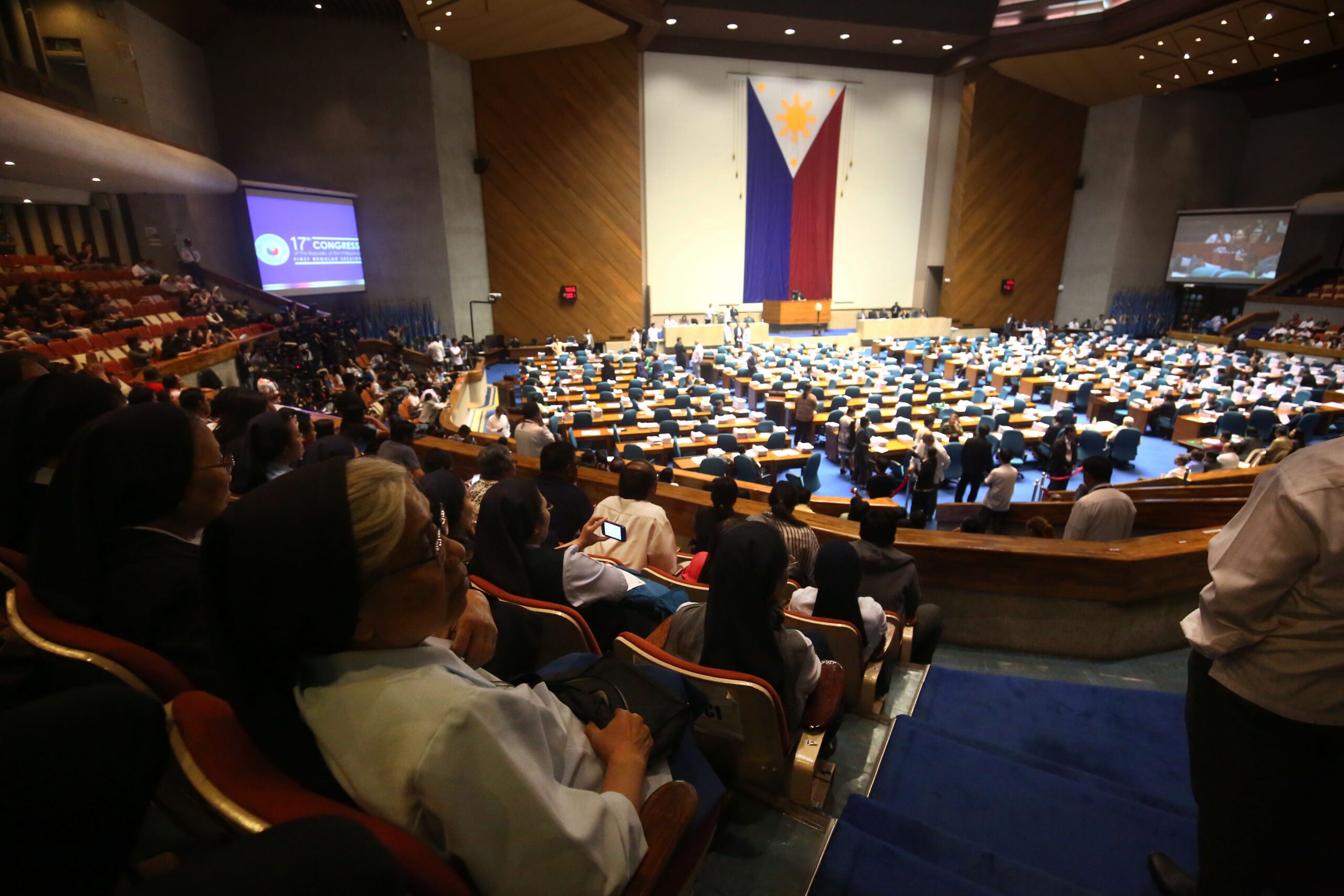
Conclusion
PART 1: What happened behind closed doors to the death penalty bill?
PART 2: When the House whips go to work for the death penalty
MANILA, Philippines – Somber-looking nuns seated at the House of Representatives’ plenary hall could only look from afar when 217 lawmakers gave their approval to reimpose the death penalty for drug convicts.
Under any other circumstances, the overwhelming number who voted for the return of capital punishment may have been surprising for the Philippines, a predominantly Catholic country.
But not during the time of President Rodrigo Duterte, who openly said Catholic bishops are “full of shit” as he accused them of corruption and indulging in sexual escapades.
Duterte, who has not been mincing words against the Church, continues to enjoy strong support from the poor even as his bloody war against drugs has resulted in more than 7,000 deaths since July 2016.
The President also has the backing of at least 267 lawmakers allied with the majority bloc, whose party whips made sure the controversial death penalty measure – House Bill (HB) Number 4727 – would be passed on 3rd and final reading on March 7. (READ: LIST: How congressmen and women voted on the death penalty bill)
Lawmakers and political analysts alike were not surprised when legislators who thumbed down the Reproductive Health (RH) bill in the 15th Congress gave their thumbs up to the death penalty in the current 17th Congress.
Is there even a Catholic vote under the administration of Duterte?
Principled voters?
There were a total of 18 lawmakers who voted no the RH bill but said yes to the death penalty bill.
They are as follows:
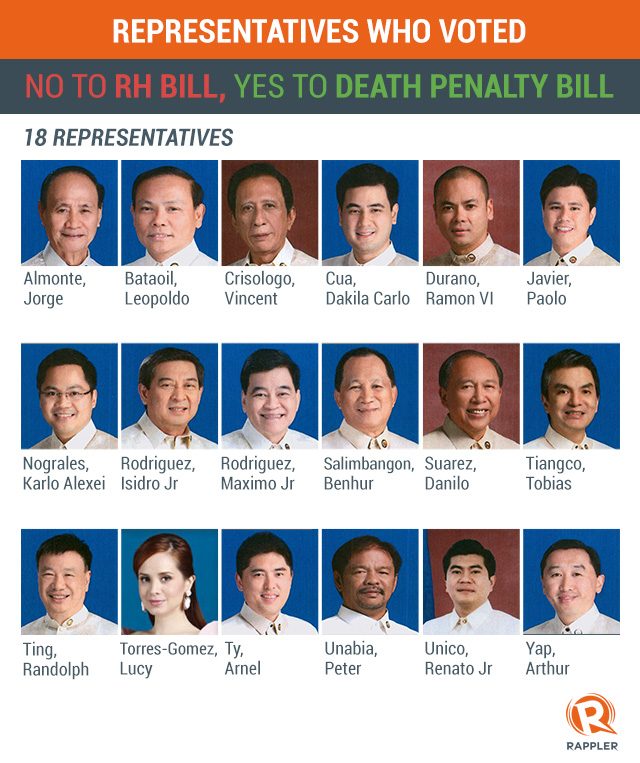
The RH bill waited for 14 years before lawmakers in the 15th Congress, in a close vote of 133-79-7, approved it on 3rd and final reading on December 17, 2012. Four days before that, then-president Benigno Aquino III certified the measure as urgent.
Reimposing the death penalty, meanwhile, was a campaign promise of Duterte. The measure is also included in his list of priority measures. No less than his top ally in the House, Speaker Pantaleon Alvarez, was a principal co-author of HB 4727.
Manila Auxillary Bishop Broderick Pabillo is saddened by the reality that in Congress, it seems that political survival trumps the religious principles of lawmakers when they decide on controversial bills that are prioritized by the sitting president.
“Ang nakaka-frustrate din ‘yung makita mo ang kultura na maraming nasa House ang walang paninindigan. So kung sino ang nasa taas, sunud-sunod sila,” said Pabillo, who chairs the Catholic Bishops’ Conference of the Philippines (CBCP) Episcopal Commission on the Laity.
(What’s frustrating is that you see the culture that there are many in the House who do not have convictions. So whoever is on the top, they just follow him or her.)
But for Davao City 1st District Representative Karlo Nograles, the RH and death penalty measures “are two distinct bills.”
“The reasons I voted against RH can be found in the records of Congress in the explanation of my vote. Particularly the legality/constitutionality of its provisions (and as predicted the Supreme court ruled against some of its provisions as being patently violative of the Constitution), the dangers they pose to women (and up to now there are still health questions that are derailing the drugs), and difference in policy and spending,” said Nograles.
He still believes that population growth “will naturally adjust” without government intervention.
“The money will be better spent on primary healthcare, education to make sure our young population is healthy and educated so they will continue to help grow our economy sustainably for years to come, instead of spending it buying condoms, pills, etc,” Nograles added.
Another curious case is that of Deputy Speaker Fredenil Castro. The representative of Capiz’ 2nd District was among the lawmakers in 2006 who agreed to abolish the death penalty under then-president and now Pampanga 2nd District Representative Gloria Macapagal-Arroyo.
Eleven years later, Castro not only voted in favor of the death penalty but he was also a principal co-author of the measure along with Alvarez.
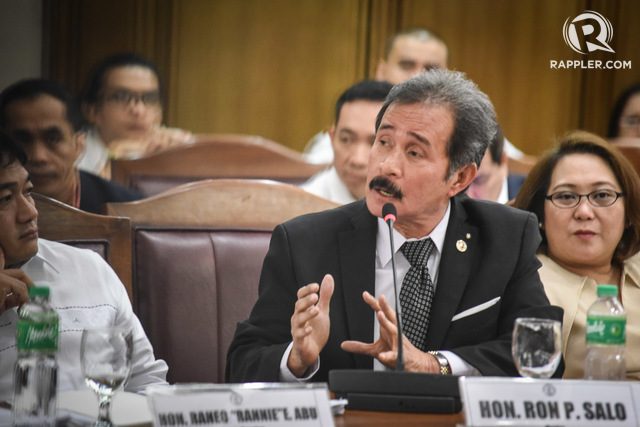
“I would just like to clarify first that I did not favor the abolition; I voted in favor of the suspension of the death penalty,” said Castro.
“What is the reason? Because at the time, there was no need [for the death penalty], but this time, as you may know in my sponsorship speech, it has become so cruel, it has become so ugly, it has become so gruesome that this criminal has ignored even the minimum standard of norms imposed in civilized society,” he said.
Just like the President, Castro believes capital punishment is retribution for the victims of heinous crimes.
According to Ateneo de Manila University political analyst Rene Raymond Rañeses, lawmakers who were given the chance to vote on both the RH and death penalty bills can also ground their arguments based on their faith.
“It’s about selectively choosing what the Bible says,” said Rañeses.
“On the one hand, there is this protection of life [argument against the RH bill], right? But on the death penalty, there is religious grounding on insisting the life of the greater majority when it comes to punishing criminals. So these are competing voices,” he added.
A ‘divided’ Church
Pabillo admitted the Church may have mobliized too late to fight the death penalty in the House as well.
“May mga signature campaign na ginawa. May mga obispo na kinausap ‘yung mga House of Representatives [members]. At saka sinabi rin sa mga faithful kung may kakilala silang representatives, kausapin nila,” said Pabillo.
(There were signature campaigns. There were bishops who talked to House of Representatives members. And the faithful were asked to talk to the representatives if they know any of them.)
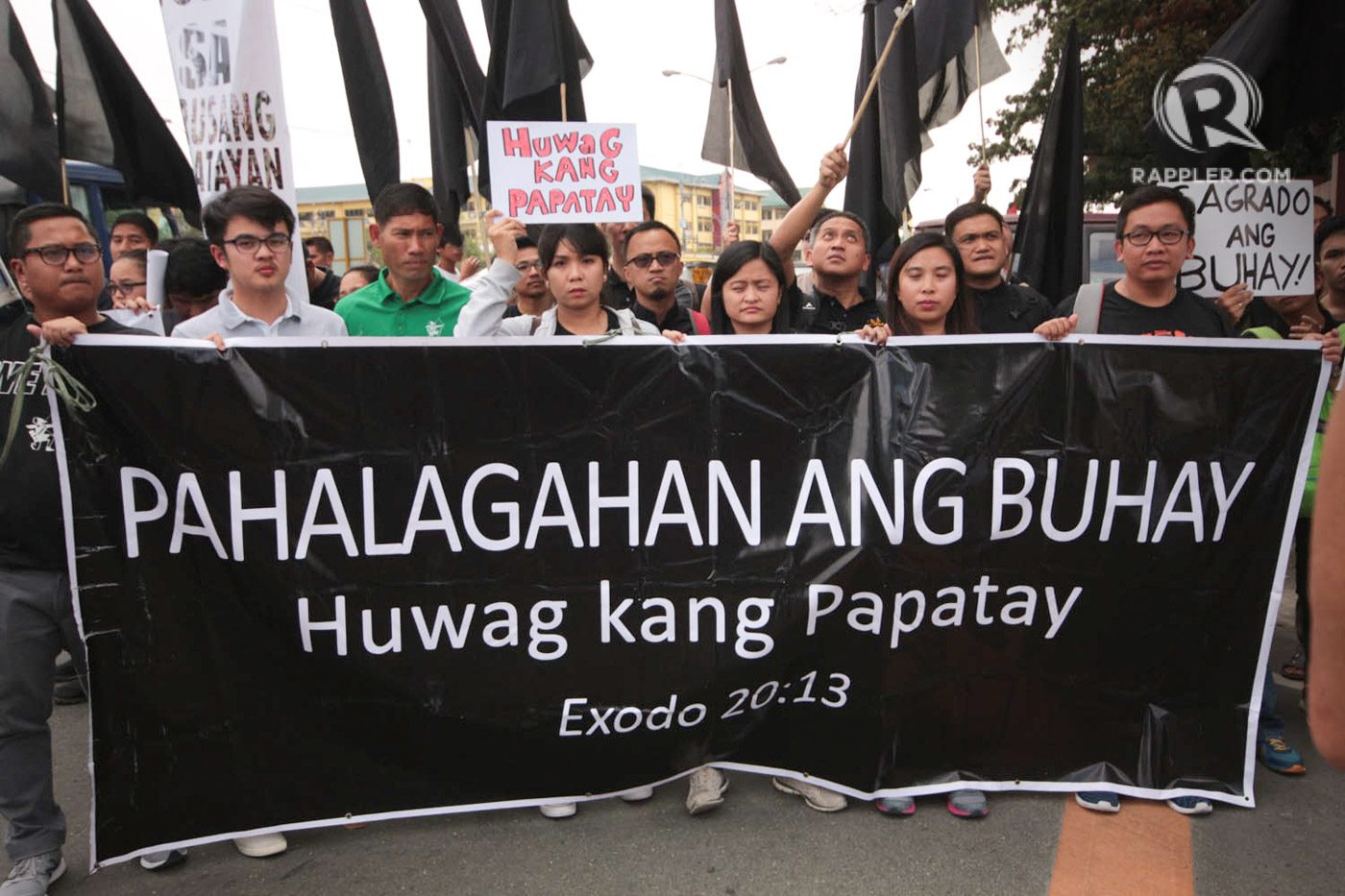
Manila Archbishop Luis Antonio Cardinal Tagle, CBCP president and Lingayen-Dagupan Archbishop Socrates Villegas, and other bishops denounced the plan to revive the death penalty. (READ: CBCP on death penalty vote: We shall not be silenced)
Catholics also staged the “Walk for Life” grand procession on February 18. The procession, attended by 10,500 Filipinos, aimed to oppose drug-related killings, the death penalty, and other measures labeled by the Catholic Church as “anti-life.”
“Pero ang problema ay huli na siguro ‘yung pag-mobilize ng mga tao, ‘no? Unlike the RH na matagal nang napag-usapan, ito, hindi matagal napag-usapan. Parang bigla-bigla na dumating,” said Pabillo
(But the problem is that the mobilization of the people was a bit too late, right? Unlike the RH where it was discussed for a long time, the discussion on this was fast. It’s like it came out of nowhere.)
Pabillo explained the Church’s time last year was divided between fighting the spate of extrajudicial killings in the country and HB 4727’s passage.
This was a far cry from the years the CBCP led the charge against the RH bill for more than a decade.
In the book, “Altar of Secrets: Sex, Politics, and Money in the Philippine Catholic Church” by the late Rappler senior investigative reporter Aries Rufo, the CBCP went head-to-head with former Health Secretary Juan Flavier when the latter promoted the use of condoms to combat HIV and AIDS.
When Flavier ran for senator in 1995, the Church mobilized its lay groups to campaign against him. Flavier won but wound up 5th, way below expectations.
Arroyo, a devout Catholic, also endeared herself to the Church not only by abolishing the death penalty in 2006, but also by aggressively promoting only the Church-backed natural family planning method.
The Church also remained relentless in its fight against the RH bill, with some dioceses even campaigning against pro-RH senatorial bets who voted in favor of the RH bill via its controversial “Team Patay” and “Team Buhay” tags during the 2013 polls.
Church losing hold over flock?
According to Aries Arugay, political analyst from the University of the Philippines, the Church has become more “politically obscure” in the past years.
“Dati kasi, ‘pag (Before when) the Church puts down a position, nanginginig ang mga politicians natin (the politicians tremble). But that has been reduced even before Duterte became president,” said Arugay.
“It has to play a more constructive role in terms of addressing the things that brought Duterte to power. The Church lost its ability to be the institution of the poor, the marginalized, the downtrodden. They lost the ability to capture those sectors of society,” he added.
Pabillo argued, however, that Duterte’s open attacks against the Church can be considered “unprecedented.”
“It’s the first time na may ganung lumalaban na openly na nagmumura openly (someone fights and curses like that openly). But we see that this is not only against the Church. This is against anything na lumalaban sa kanya, kagaya sa (against him, like the) UN (United Nations), kay [former US President Barrack] Obama…That is something new. That is unprecedented,” said Pabillo.
He admitted the Church is still figuring out the best approach to fight not Duterte per se, but his supposed “mismanagement of the government.”
“Ang sa amin naman, it is not against Duterte. It is against the masamang pamamalakad kung sino man ‘yan. May nagsalita naman laban kay Gloria sa corruption, laban kay PNoy dahil sa wala siyang ginagawa. Ang problema sa kanya (Duterte), pine-personal niya,” said Pabillo.
(For us, it is not against Duterte. It is against the mismanagement of whoever. We spoke against Gloria over corruption, against PNoy because he did not do anything. The problem with him (Duterte) is that he takes it personally.)
The fight continues
Now that the death penalty bill was passed by the House, how does the Church plan to stop the bill in the Senate?
According to Pabillo, “small groups” from within the Church have been meeting to draft initial plans of action.
One of the proposed plans is to once again campaign against pro-death penalty lawmakers who will run in the 2019 polls.
“Siguro panagutin ang ilang mga representatives. Ipaalam sa mga tao ‘yung boto nila. Ilagay sa simbahan. Paalalahanin natin sila sa 2018. At pagkatapos, ilagay na rin sa Facebook. Magsa-strategize pa kami,” said Pabillo.
(Maybe we’ll hold the representatives accountable. We’ll make their votes known to the public. We’ll post them in churches. We will remind them in 2018. At after that, we can put it on Facebook also. We are still going to strategize.)
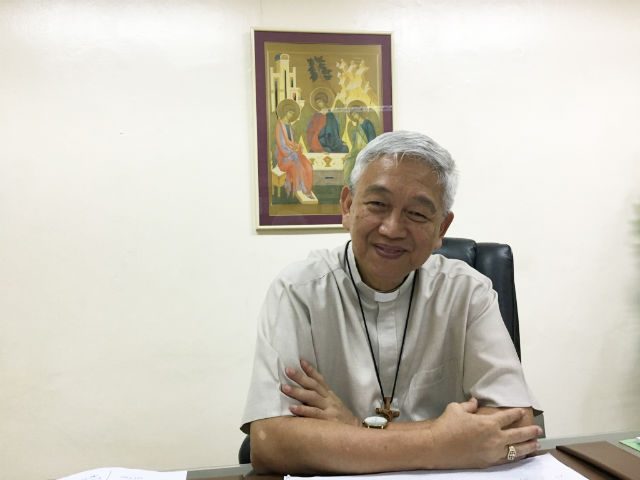
The Church is also planning to stage another “Penitential Walk for Life” on Good Friday next month, with the Church targeting the procession to be held from Baclaran to the Manila Cathedral. Pabillo said the procession aims to “meditate on the Way of the Cross from the point of view of life.”
The 217-54-1 vote for the death penalty bill at the House only shows that the odds are against the Church. But according to Pabillo, it is during times like these when the Church must continue fighting.
“Because I think we should not stop speaking about the truth. We should not stop defending life. Bahagi ng mission ng Simbahan ‘yan (That’s part of the Church’s mission),” said the bishop.
“Kasi kung mananahimik tayo, parang ina-accept mo na ‘yung masasama. Kahit nag-iisa ako, kahit isang boses lang ‘yan, sinasabi ko, ‘Bitay, hindi tama ‘yan,’” Pabillo added.
(Because if we are silent, it’s like accepting the bad things that are happening. Even if I am alone, even if it’s just one voice, I’d still say, “Death penalty is wrong.”) – Rappler.com
Add a comment
How does this make you feel?
There are no comments yet. Add your comment to start the conversation.